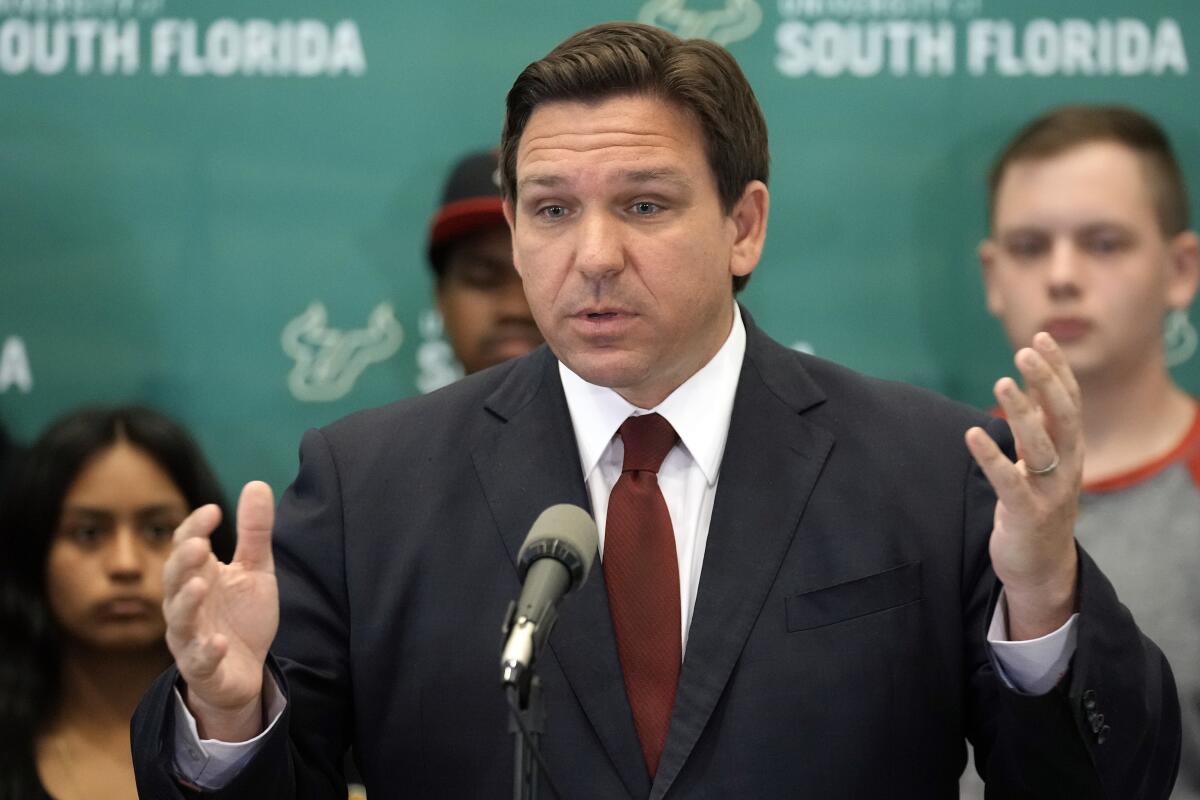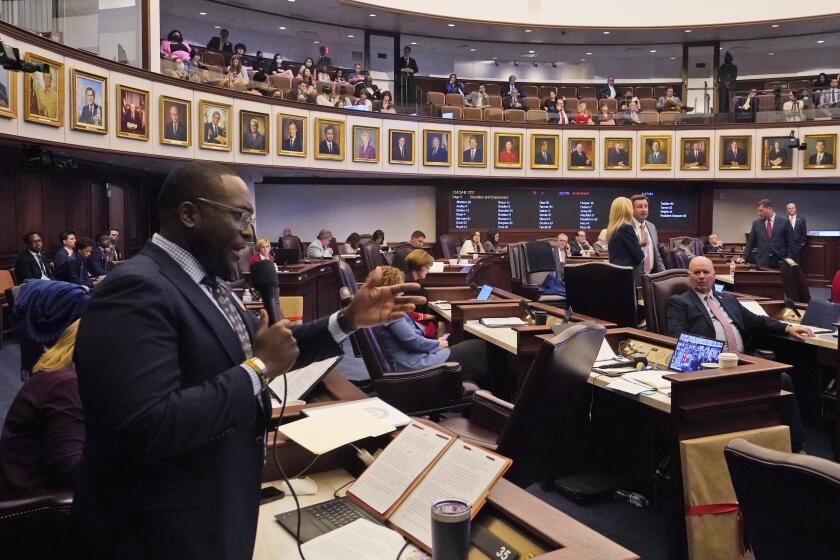Florida House sends election police bill to Gov. Ron DeSantis for expected signature

- Share via
TALLAHASSEE, Fla. — Florida lawmakers passed a voting law package Wednesday that would create a police force dedicated to pursuing election crimes, a priority of Republican Gov. Ron DeSantis.
The Republican-controlled House approved the measure on a party-line vote and sent it to the governor’s office, where he was expected to sign it into law Wednesday evening. The measure had already passed the Senate.
DeSantis, a potential 2024 presidential candidate, called for an election police unit in a speech last year in which he referenced unspecified cases of fraud. Such allegations have become popular among those in the GOP who have embraced former President Trump’s false claims that his reelection was stolen in 2020 due to widespread fraud.
Voter fraud is rare and generally detected. An Associated Press investigation of every potential case of voter fraud in the six battleground states disputed by Trump — Arizona, Georgia, Michigan, Nevada, Pennsylvania and Wisconsin — found fewer than 475 cases out of 25.5 million ballots cast. There is also consensus among election officials and experts that there was no fraud that could have changed the results in the election Trump lost to Democrat Joe Biden.
The new law will create an Office of Election Crimes and Security under the Florida Department of State that will review fraud allegations and conduct preliminary investigations. DeSantis will be required to appoint a group of officers from the Florida Department of Law Enforcement to pursue alleged election law violations.
Florida Republicans have passed a bill to forbid instruction on sexual orientation and gender identity in kindergarten through third grade.
State law previously allowed the governor to appoint officers to investigate violations of election law, but did not require him to do so.
“You’re not going to maintain the gold standard of election integrity if you don’t constantly address the different ways that criminals will look to exploit loopholes in the system,” Republican state Rep. Tommy Gregory said.
Over about two hours of debate Wednesday, Democrats argued that the measure would weaken confidence in the electoral system despite the rarity of voter fraud.
“What bills like this do is say there’s a problem with our elections system that we’re trying to solve,” Democratic Rep. Fentrice Driskell said. “It perpetuates this concept that they shouldn’t be able to trust what happens in government. This is a monster that will eat us alive if we let it.”
“Are we afraid of our elections being too secure?” Republican Sen. Travis Hutson, a sponsor of the bill, asked fellow lawmakers last week when it passed the GOP-controlled Senate.
The law will also make it a felony for a third party to collect completed ballots — often referred to as ballot harvesting. It raises fines for certain election law violations, and requires election supervisors to conduct maintenance of their voter lists more frequently.
Critics have said that the measure is intended as a way for DeSantis to appease Republicans who believe the 2020 election results were fraudulent, and that a new law is unnecessary because local prosecutors can handle fraud cases.
“It is very clearly an attempt to satiate a certain sector of the base that has been bombarded with misinformation about the 2020 election and the ‘Big Lie,’” said Brad Ashwell, Florida director of the advocacy group All Voting is Local.
Trump’s false claims of fraud have led to a wave of voting restrictions in Republican-controlled states.
Last year, DeSantis signed a bill that put new rules on ballot drop boxes and required a driver’s license number, state ID number or last four digits of a Social Security number to request a mail ballot, among other changes.
That law is the subject of a federal trial after a challenge from voting rights groups.
More to Read
Sign up for Essential California
The most important California stories and recommendations in your inbox every morning.
You may occasionally receive promotional content from the Los Angeles Times.











